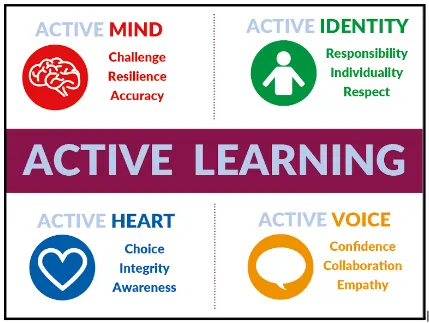In today’s fast-paced world, hard work alone is not enough to achieve success in academics or competitive exams. The concept of “Smart Study” has become essential, as it focuses on making your learning process efficient, time-saving, and result-oriented. Unlike traditional studying, smart study emphasizes techniques that maximize productivity while reducing wasted effort.
In this blog, we’ll explore the meaning of smart study and provide 10 practical points that can transform your preparation style.
What is Smart Study?
Smart study means studying strategically rather than blindly. It’s about knowing what to study, how to study, and when to study. For example, instead of reading the entire book multiple times, you focus on important topics, summaries, and repeated revision. It combines techniques like time management, note-making, visualization, and regular testing to ensure that your efforts bring maximum results.
Why Smart Study Matters
- It saves valuable time.
- It helps retain information for longer.
- It reduces stress and mental fatigue.
- It increases confidence by providing clarity.
- It makes preparation more exam-oriented.
Now let’s explore 10 effective tips for Smart Study.
1. Set Clear Goals Before You Begin
Without direction, studying can feel endless and unproductive. Always start with a clear goal for the day or week. For instance, instead of saying, “I will study history today,” set a target like, “I will complete the Modern History chapter on the Revolt of 1857 and revise my notes.”
👉 Clear goals act like a roadmap that guide your study sessions.
2. Follow the 80/20 Rule
The Pareto Principle (80/20 Rule) states that 80% of results come from 20% of efforts. In studying, this means focusing on important topics and high-weightage areas rather than wasting time on everything equally.
👉 Example: For competitive exams, focus more on current affairs, high-scoring subjects, and frequently repeated questions.
3. Make Your Own Notes
Reading from textbooks is necessary, but making personalized notes is what transforms raw information into long-term memory. Write in your own words, highlight important terms, and use diagrams or flowcharts.
👉 Notes help in quick revisions just before exams.

4. Use Active Learning Techniques
Passive reading often leads to forgetting. Instead, engage in active learning methods:
- Summarize a topic aloud.
- Teach it to a friend.
- Solve practice questions.
- Create mind maps.
👉 When you involve multiple senses, your brain retains information better.
5. Practice Spaced Repetition
One of the most effective smart study techniques is spaced repetition. Instead of revising everything in one go, revise the same topic at increasing intervals (e.g., after 1 day, 3 days, 7 days, 15 days).
👉 This technique strengthens memory and prevents forgetting.
6. Break Study Sessions Into Chunks
The brain can’t concentrate for hours continuously. Use the Pomodoro Technique:
- Study for 25–30 minutes.
- Take a 5-minute break.
- After 4 cycles, take a longer break of 20–30 minutes.
👉 Short, focused sessions are far more productive than long, tiring ones.
7. Use Visual Learning Tools
Human memory works best with visuals. Replace long paragraphs with:
- Charts and diagrams
- Infographics
- Flashcards
- Mind maps
👉 This method makes learning engaging and helps in quick recall during exams.
8. Solve Previous Year Papers & Mock Tests
Smart study is incomplete without exam practice. By solving previous year papers, you understand:
- The exam pattern
- Important topics
- Time management
Mock tests help simulate the real exam environment, making you exam-ready.
9. Maintain Consistency, Not Marathon Sessions
Many students make the mistake of studying 10–12 hours in one day and then taking breaks for the next few days. Smart study is about consistency, not overexertion. Even 3–4 focused hours daily are more powerful than irregular long sessions.
👉 Regularity builds momentum and reduces exam pressure.
10. Take Care of Your Mind & Body
Studying smart also means keeping yourself physically and mentally fit. Adequate sleep, balanced diet, exercise, and meditation improve focus, memory, and energy levels.
👉 Remember: A healthy body supports a sharp mind.
Conclusion
Smart study is not about working less—it’s about working intelligently. By setting clear goals, using techniques like active learning, spaced repetition, mock tests, and staying consistent, you can achieve maximum output in less time.
If you truly want to succeed, stop studying blindly and start studying smartly. After all, exams don’t just test knowledge—they test your strategy, preparation style, and efficiency.
With these 10 powerful smart study tips, you can unlock your true potential and take your preparation to the next level.
NOTE: Eplore How to Overcome Stress and Stay Focused in the Final Month of BPSC Prelims